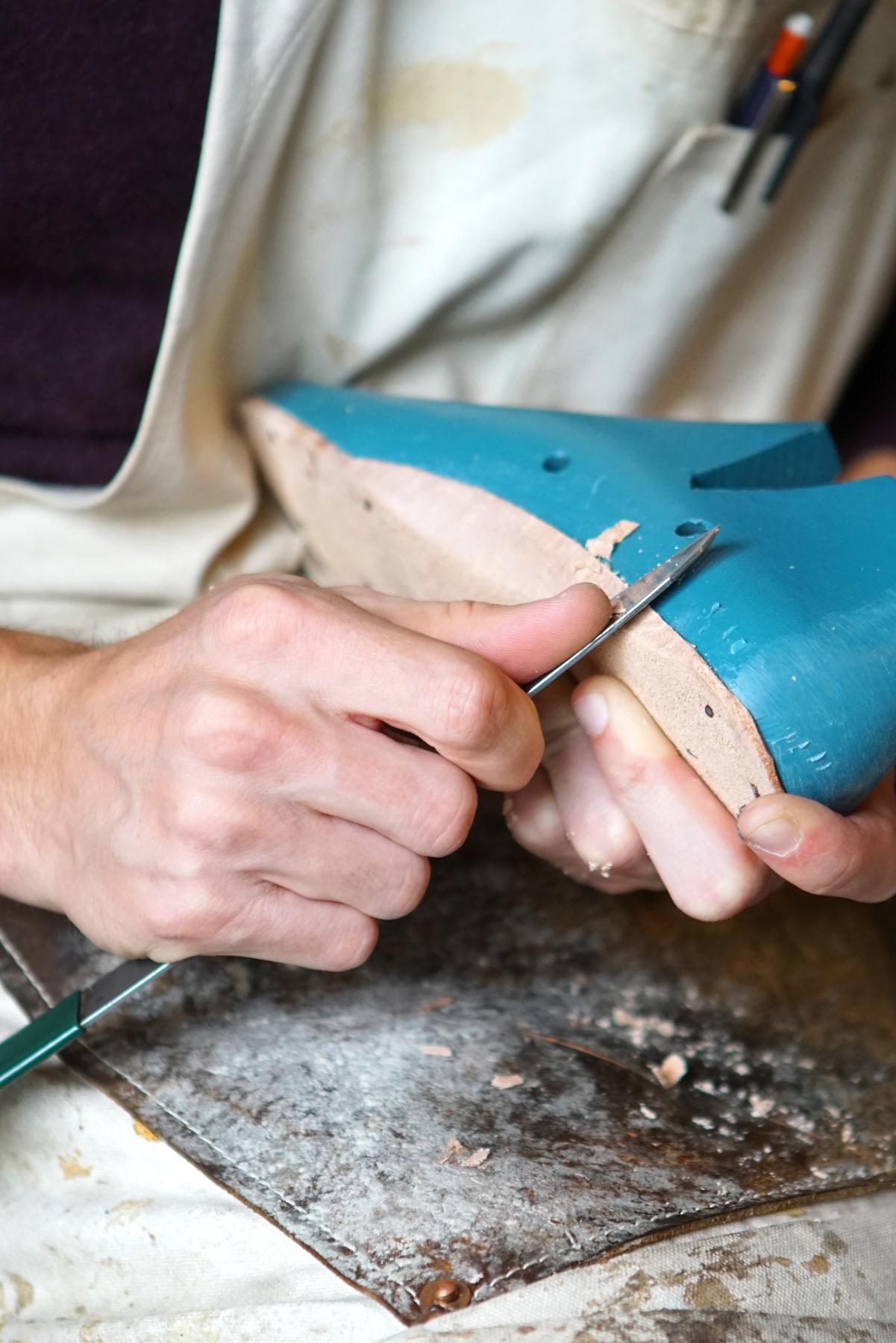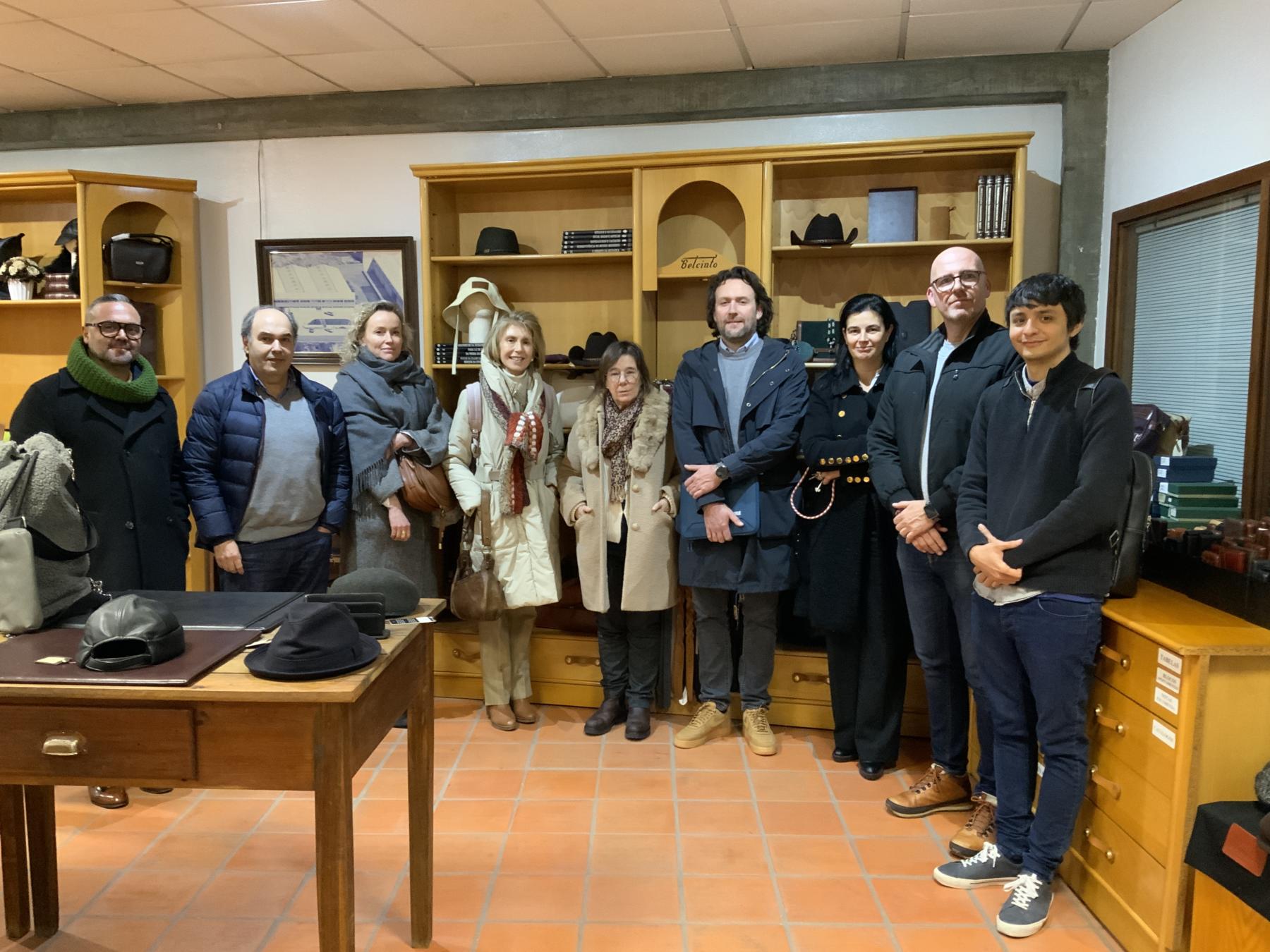Policies
Education Policy

Education and training are crucial to maintain and strengthen the competitiveness of European footwear companies because workers represent the main asset of the industry. The process of creating a shoe is complex and requires artistic and technical skills as well as specific know-how in order to combine craftsmanship with the opportunities brought by new technologies and digitalisation. A quality shoe undergoes numerous stages of production before it is completed. The exact number of operations involved can vary drastically but often go beyond 200, depending on the product, the selected production method and the tools used. In this relation, the process of shoe creation has changed over the years and alongside the master craftsman, new technologies and innovative processes support the manufacturing process.
It is well-recognised that a successful future of the European industry can only be possible with a skilled and motivated workforce. The damage caused by the COVID-19 pandemic to the TCLF industries has reinforced this need, and the survey of TCLF companies conducted by CEC, EURATEX and COTANCE in February 2021 highlighted the crucial importance of skills for EU TCLF companies among their priorities: close to 85% of respondents recognise that skills will be important or very important in the next five years.
Thus, in collaboration with education providers and industry, CEC’s objectives include:
- Boosting the development and updating occupations in the sector as well as providing education and vocational training tailored to the needs of the industry in order to prepare future generations and to keep the precious heritage of knowledge and experts in Europe.
- Promoting and increasing the visibility of job opportunities that the industry offers.
- Communicating and promoting the attractiveness of the footwear sector and the career opportunities it offers, particularly to younger generations.
In this regard, the CEC together with other European partners participate in European Commission projects under the ERASMUS+ programme supporting education, such as:
- Skills4Smart TCLF Industries 2030 Blueprint (S4TCLF)- Enhancing the modernisation and competitiveness of the European Union’s Textile, Clothing, Leather and Footwear (TCLF) sectors.
- SciLED – Footwear in the 21st century: New skills for the design of drastically improved comfort, sustainable, fashion-oriented and scientifically-led footwear products
- DiaSHOE– Digital Education for Diabetic Foot Control
- DigitalFABLAB – Footwear virtual learning-by-doing. Transition from analogue practices to digital education
The projects will not only contribute to developing the best skills strategy to ensure smooth digital and green transitions for the EU footwear industry, but also to support its recovery from the COVID-19 crisis.
A European Network of TCLF VET providers promoting Excellence
Conducted within the framework of the Erasmus+ S4TCLF project, this initiative brings together European Vocational and Training (VET) institutions to further strengthen TCLF skills provision in Europe through the implementation of ambitious joint actions. With members from Belgium, Bulgaria, France, Germany, Greece, Italy, Portugal, Poland, Spain and Romania, the Network of European TCLF VET providers fosters collaboration and skills transfer, implements concrete actions to strengthen the quality and efficiency of VET, and reaches out to public authorities to make sure that the necessary investments are directed toward the modernisation of VET systems and infrastructure, with the ultimate objective of bringing more students and skilled workers to these industries.
More about the European Network of TCLF VET providers promoting Excellence here.
At High Education level, the SciLED Knowledge Alliance pursues a European network driven by High Education and research members aligned through a shared vision to achieve new skills for the scientifically-led design of comfortable, sustainable and fashion-oriented footwear products in line with the latest consumers’ demands.
A Pact for Skills for the TCLF sectors
In autumn 2020, the European Commission launched the Pact for Skills initiative within the new EU Skills Agenda that will boost among others vocational education and training in Europe. The Pact aims to mobilise all relevant public and private stakeholders and take concrete actions and commitments to upskill and reskill people in Europe. Overall, the Pact will support a fair and resilient economic recovery from COVID-19 and deliver on the ambitions of the green and digital transitions of the different industries.
The CEC enthusiastically welcomed both initiatives. Together with the other EU TCLF confederations and stakeholders is developing on a Pact for Skills for the TCLF sectors, which was officially launched in March 2021 at a High-level Roundtable with European Commissioners Nicolas Schmit and Thierry Breton and other TCLF stakeholders. On this occasion, CEC president Luis Onofre proposed three main avenues for action under such Pact for Skills:
- Strengthen the cooperation between the world of work and the world of education to bridge the gap between skills’ supply and demand;
- Prompt European regional/ national governments to financially support TCLF companies in their up- and reskilling activities and modernise Vocational Education and Training (VET) systems, both in terms of facilities and equipment, and make their regulatory framework more agile and responsive to fast changing companies’ needs, and
- Deploy efforts to increase the attractiveness of the TCLF industries by showcasing the multiple career paths and opportunities they offer to young people and others interested in a career change.
The Joint position paper signed by EU TCLF industries confederations on the New Skills Agenda and the Pact for Skills is available here.


